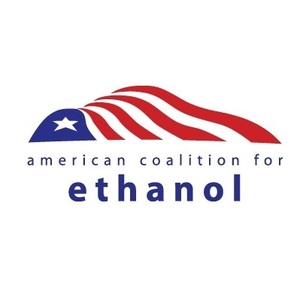ACE supports policies to credit ag, biofuels for net-zero GHGs

November 16, 2021
BY American Coalition for Ethanol
During its Nov. 10 meeting, the American Coalition for Ethanol board of directors voted to support new policies that credit farmers and ethanol producers for activities helping ethanol reach net-zero greenhouse gas (GHG) emissions by mid-century.
THE RESOLUTION:
The ACE Board of Directors supports the adoption of policies at the state and/or federal level that recognize ethanol is part of the climate and health solution while crediting farmers and ethanol producers for these activities, which will help ethanol reduce lifecycle GHG emissions by at least 70% on average compared to gasoline by 2030 and reach net-zero lifecycle GHG emissions by 2050.
Advertisement
This resolution aligns with ACE’s ongoing work to highlight how climate-smart farming practices, efficiencies at ethanol plants, and the capture and sequestration of biogenic CO2 from facilities puts ethanol on a unique trajectory to reach both net-zero and net-negative emissions. It also aligns with ACE's advocacy of new technology-neutral clean fuel policies at the state and federal level that will ensure a growing market for low carbon ethanol even as overall petroleum use declines.
BACKGROUND:
In 2014, ACE began working with the Department of Energy’s Argonne National Laboratory on improvements to its GREET model to ensure the climate contributions made by farmers are properly credited in lifecycle modeling. ACE’s engagement has resulted in several updates that more fully quantify corn ethanol’s ever-shrinking carbon footprint, including improvements to the 2021 GREET model.
ACE’s 2018 white paper “The Case for Properly Valuing the Low Carbon Benefits of Corn Ethanol” further illustrates how lifecycle modeling needs to better reflect modern-day farming practices and ethanol production technologies and why increasing ethanol use is part of the solution to further reduce GHG emissions.
Advertisement
In 2020, ACE helped lead the release of “A Clean Fuels Policy for the Midwest,” a policy blueprint to encourage new low-carbon fuel markets. This helped create momentum for bipartisan clean fuels policy legislation, which was approved by the Minnesota House of Representatives in 2021. In Congress, ACE’s engagement led the House Select Committee on the Climate Crisis to include a page from the Midwest Clean Fuel Policy blueprint in its June 2020 report by recommending Congress develop a technology-neutral Low Carbon Fuel Standard that would provide meaningful economic benefits to farmers and biofuel producers.
Most recently, ACE and several partners were awarded a grant under USDA’s Regional Conservation Partnership Program project that will compensate farmers for adopting climate-smart agricultural practices that sequester carbon, reduce GHG emissions, and improve soil health.
Related Stories
CountryMark on July 22 celebrated the completion of more than $100 million in upgrades at its refinery in Indiana, including those related to soybean oil storage. The facility produces renewable diesel via coprocessing technology.
ATOBA Energy and Air Moana are partnering to implement scalable solutions for the supply of SAF. The collaboration aims to ensure long-term SAF availability while supporting local initiatives to develop sustainable fuel production in Tahiti.
While final IRS guidance is still pending, the foundation of the 45Z program is well defined. Clean fuel producers should no longer be waiting; they can now move forward with critical planning and preparation, according to EcoEngineers.
Neste Corp. on July 24 released second quarter results, reporting record quarterly renewable product sales volumes despite weaker margins. SAF sales were up nearly 80% when compared to the first quarter of 2025.
Valero Energy Corp. on July 24 released second quarter results, reporting a profitable three-month period for its ethanol segment. The renewable diesel segment posted a loss, but the company’s new sustainable aviation fuel (SAF) unit operated well.
Upcoming Events










